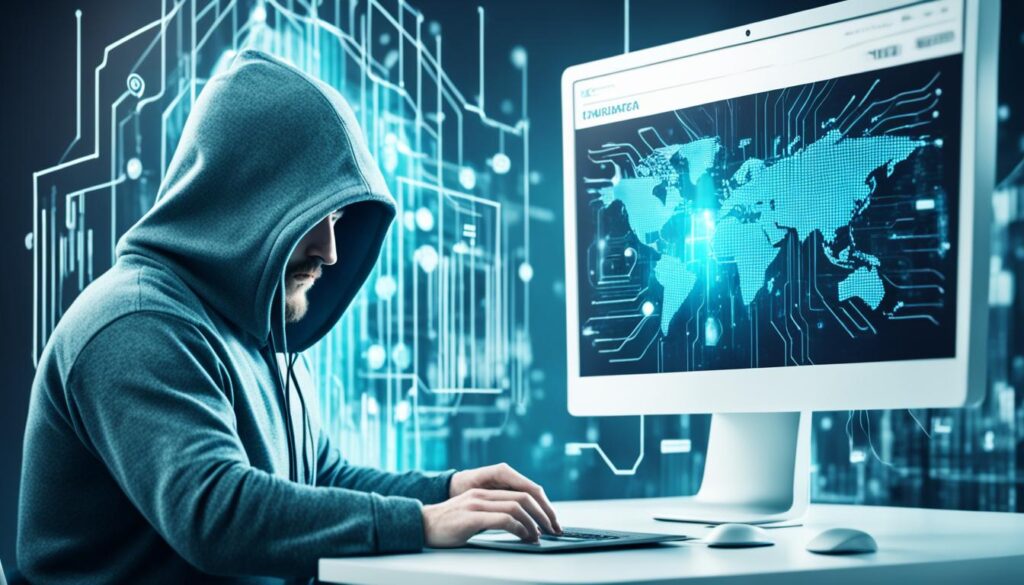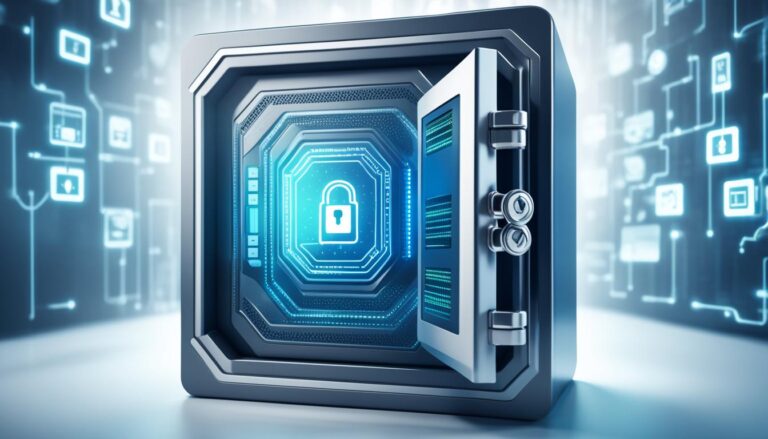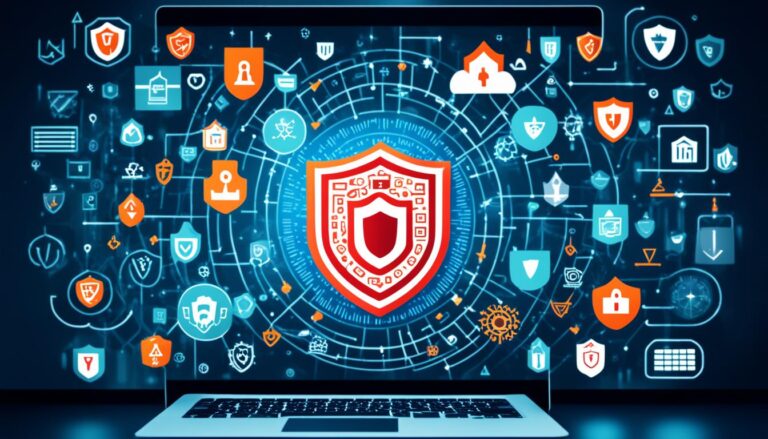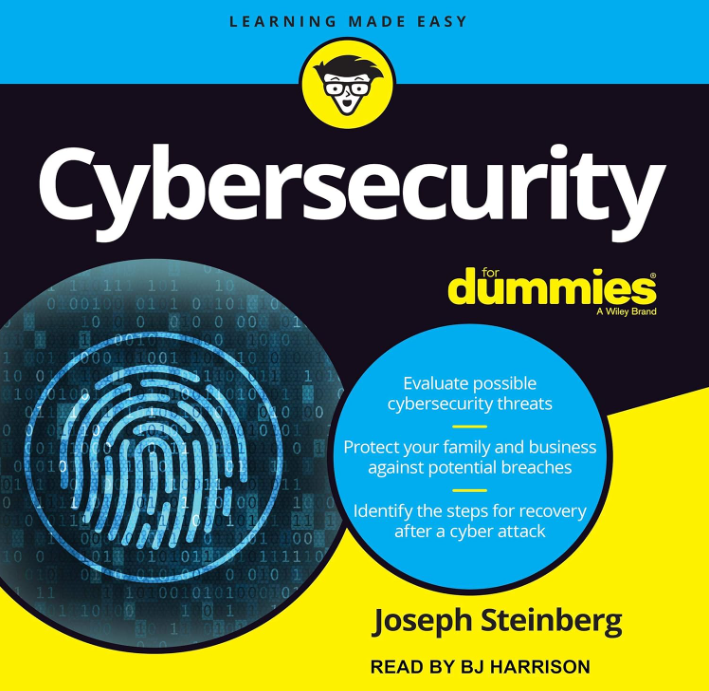In today’s digital world, cybersecurity for personal users is more important than ever. Every time you click or share, you risk facing new cyber threats. This highlights the need to protect your personal information online. It’s not just good advice; it’s essential.
Cybersecurity defends our online personal spaces against attacks. As cybercrime tactics grow more advanced, setting up strong defenses is key. Being proactive in protecting your data keeps you ahead of evolving digital risks.
The use of digital tools in daily life has made things easier but also opened the door to risks. We rely on digital services more, giving cybercriminals more chances to strike. This makes cyber threats for personal users a major worry, as they can cause serious harm, including financial loss.
Key Takeaways
- Recognizing cybersecurity as indispensable in the digital age.
- Importance of proactive measures to protect private information online.
- Understanding the growing sophistication of cyber threats against individuals.
- Urgency in updating and strengthening personal cybersecurity protocols.
- Need for regular knowledge upgrade on cybersecurity practices and threats.
Understanding Cybersecurity and Its Evolution
As we go deeper into the digital age, understanding cybersecurity is more important than ever. It’s essential for keeping our online systems safe. This field’s evolution shows how it’s getting more complex. It’s crucial for both personal and business use.
Defining Cybersecurity in the Digital Age
In today’s world, cybersecurity involves many practices to keep systems and data safe. It aims to protect against attacks and unauthorized access. As technology moves forward, so do the cyber threats. This makes having strong security plans vital.
The Rise of Cyber Threats with Advancements in Technology
The rise of cyber threats shows how linked we are to technology. Our digital lives face risks, and even national infrastructures are in danger. This problem is serious and affects everyone.
Cybersecurity Versus Information Security: Clarifying Concepts
Some mix up cybersecurity and information security, but they’re different. Information security is about protecting all data. Cybersecurity focuses on digital information and warding off threats.

It’s key to understand these basics for anyone interested in cybersecurity. This knowledge helps individuals and organizations protect themselves. It’s all about facing the challenges of the digital age.
Exploring the Cyber Threat Landscape
The cyber threat landscape keeps changing, which brings new security problems for all of us. Knowing the types of cyber threats is key to staying safe.

Personal user vulnerabilities are very important when it comes to these threats. For example, not knowing enough about keeping safe online and using old software makes you more at risk.
- Malware: Software that harms or takes advantage of any device, service, or network.
- Phishing Attacks: Evil plans to get important info by pretending to be someone you can trust.
- Ransomware: Bad software that threatens to share your private data or stop you from getting it unless you pay money.
- Social Engineering Scams: Tricks that make people give away secrets or do things that are not safe.
To protect yourself from these threats, it’s important to learn about cybersecurity best practices and make your defense stronger.
- Always update your software to fix weak points.
- Use strong antivirus and malware tools.
- Have hard-to-guess passwords for each account.
By getting to know the cyber threat landscape, you can shield against the most common types of cyber threats. This helps protect both your digital life and personal information.
Why Personal Users Should Prioritize Cybersecurity
In today’s world, making cybersecurity a top priority is crucial. Our personal data is now a major target for attackers. It’s vital to know the risks and what modern cybercriminals can do.

Risks Associated with Exposure of Personal Data
When personal data is exposed, it can lead to severe consequences. Users can face financial harm or even threats to their safety. Identity theft and unauthorized purchases are among the dangers. Legal issues may also arise if sensitive info gets in the wrong hands.
The Growing Sophistication of Cybercriminal Tactics
Cybercriminals are getting smarter, using advanced methods to get around security. They constantly improve tactics like phishing and ransomware. This means users need strong cybersecurity measures in place.
Protecting against these threats requires a thorough cybersecurity plan. It involves keeping security software up to date. You should also learn about the latest cyber threats. Managing your online presence carefully is key as well.
The Shift in Cybersecurity Dynamics: From Business to Personal
The shift in cybersecurity dynamics is moving from the business world to everyday people. Our heavy use of digital tools means our online security is very important. It’s crucial for everyone to know and follow the latest trends in staying safe online.
Cybersecurity used to be mainly for big companies, keeping their data safe. Now, it’s up to each of us to protect our own info from online threats. We use the internet more, which makes us more vulnerable.
- Increased usage of online banking services
- Growing popularity of remote work
- Expansion of social media platforms
Online safety is key for everyone, not just businesses. Hackers focus on people now, not just on companies.
To stay safe, we must keep up with new cybersecurity trends. This means using new methods and tools to shield ourselves from danger. It’s about knowing we play a big role in keeping our data safe, not just having antivirus.
Learning about how to stay safe online is ongoing. We need to know the latest ways to protect ourselves. Better passwords, using two-step login, and watching out for scams all help keep us safer.
Keeping safe online is now more about personal efforts. We must always be alert and take steps to protect ourselves. This not only keeps us safe but makes the whole internet safer for everyone.
The Importance of Cybersecurity for Personal Users
The importance of personal cybersecurity is more critical than ever in today’s world. Our digital footprints are just as visible as our physical ones. For those not familiar with tech jargon, cybersecurity awareness for non-experts means learning and using simple steps to protect your personal information. It’s key for protecting personal information online, something we all need to do now.
- Regular Password Updates: Changing passwords often keeps your info safe.
- Use of Two-Factor Authentication: It makes your accounts more secure against attackers.
- Regular Software Updates: Updating software helps you stay ahead of threats.
- Basic Cybersecurity Education: Knowing about cyber threats can greatly lessen risks.
The digital era has changed how we communicate and connect. But, it also means we must focus more on keeping our data safe. Teaching cybersecurity awareness for non-experts lets people shield their digital lives. This way, they can keep enjoying online activities while keeping their privacy intact.
Virtual Private Networks: Gatekeepers of Online Privacy
In the world of online safety, virtual private networks (VPNs) are key for keeping personal data safe. They help in keeping our web behavior private from unwanted eyes. Learning about VPNs and what they offer helps everyone shield their digital lives from cyber threats.
Basics of VPN Operation and Benefits
VPNs are essential because they keep our online movements safe from prying eyes by encrypting our data. This means if hackers try to see what we do online, they’ll only see scrambled text, not our passwords or credit card info. VPNs also hide our IP address, which means we can surf the web with more privacy.
- Enhances security by encrypting internet connection
- Provides anonymity by masking IP addresses
- Enables access to geo-restricted content
Choosing the Right VPN: What to Look For
Choosing the best VPN means looking carefully at the features that matter most. It’s important to check how secure it is, how easy it is to use, where their servers are, and the price.
- Strong encryption standards to ensure robust data protection
- No-logs policy to guarantee privacy of your online activities
- High-speed server connections for minimal impact on internet speed
Knowing about VPNs lets us pick the right one for staying safe online. The service we pick affects how well we can manage our online security. It’s an important step towards guarding our online lives.
Password Management Software: Creating and Storing Strong Credentials
In today’s world, staying safe online is key for everyone. It’s especially important for personal users. Using password management software is a big part of this. It lets you create strong passwords and keep them safe. This is critical if you want to protect your personal info from online dangers.
Bad passwords can easily let hackers into your accounts. But, with password management software, your passwords are safer. It helps you make complex passwords that are hard to guess. This makes it much less likely that someone can break in.
- Strong Password Creation: Automatically generate passwords that meet the highest security standards.
- Secure Storage of Credentials: Keep all passwords safely encrypted and accessible through a master password.
- Regular Updates: Ensure that your credentials are always up to date with the latest security practices.
Password management software makes your online life more secure. It simplifies managing your different accounts too. Keeping your passwords safe and using strong ones is very important. It’s like an invisible gate that keeps out online dangers. By using good password software, you’re making a big move to stay safe online.
Antivirus Software: Your First Line of Defense Against Malware
In the digital world, antivirus software is key for keeping your devices safe. It fights against many online threats. Understanding how it works can help you be safer online.
Understanding the Role of Antivirus in Cyber Protection
Antivirus software works to find and stop harmful software. It looks at your files, comparing them to a list of dangers. This way, it helps keep your system and data safe from malware.
Navigating Through the Options: Selecting the Best Antivirus
Choosing the right antivirus needs some thought. Consider what device you use and how you use it. Then, think about the level of security you need. Here’s a guide to help you pick:
- Make sure it works well with your system for smooth protection.
- Pick one that does more than just stop malware, like scanning in real-time and guarding against ransomware.
- It should keep your device running fast while it protects it.
- Choose one that’s easy to set up and use.
- Look for good support and software that’s updated often to fight new threats.
Looking at these points can help you find antivirus software that’s right for you. It will offer strong protection that fits your needs.
Cybersecurity Best Practices for Everyday Users
In today’s world, boosting your online safety with key cybersecurity best practices is vital. It helps you stay safe while using the internet. Making sure you browse securely and keep your devices updated is key to protecting yourself online.
Secure Browsing Habits and Online Security Tips
Learning to browse safely is very important for your personal security online. Here are some tips to help you do just that:
- Avoid clicking on links or downloading files from places you don’t know.
- Turn on two-factor authentication to make your accounts more secure.
- Use browsers that protect your privacy or add extensions that do the same.
Regular Updates and Patches: Maintaining Cyber Hygiene
It’s key to keep your software and devices updated. Regular updates and patches help your things work better. They also fix security flaws that hackers can use to get into your stuff.
- Always update your devices right away when new updates come out.
- Make sure to look for updates on software that doesn’t update itself.
- Stay alert about any problems or security issues with your devices and software.
Keeping Up with Cybersecurity Awareness and Training
Cybersecurity awareness matters for everyone on the internet. Cyber threats don’t care about your tech skills. In today’s world, where threats are getting smarter, knowing more and training are your best protectors.
Cybersecurity training is a key part of staying safe online. It lets people spot threats and know what to do to keep their info safe. Now, let’s look at how learning about cybersecurity can really help:
- Frequent Updates: Tech and threats change fast. Regular training keeps you in the know about new security steps and tech.
- Customized Learning: Not everyone has the same tech skills. Training made just for you can fix what you don’t know, making you stronger against threats.
- Simulated Attacks: Acting out fake cyberattacks, like in phishing tests, can get you ready for the real stuff. It’s a big part of how we learn to stay safe.
Plus, keeping up with cyber threats is an everyday thing. It means making learning and good habits part of your life. Here’s how:
- Subscribe to trusted cybersecurity news and alerts。
- Go to online events and in-person meetups that talk about how to defend against new threats.
- Join forums and groups that talk about keeping people safe from cyber-attacks.
Knowing about cybersecurity and getting into training are super important. They help everyone on the internet keep their digital selves safe from new and old threats. They help us all stay private and secure online.
Conclusion
In our digital world, keeping our online life safe is super important. We face many risks from people who want to harm us online. This means we need to be careful and take steps to keep our information safe.
Understanding how to stay safe online is really crucial. Things like updating our software, not clicking on risky pages, and using antivirus software help a lot. These steps are not just helpful but essential in fighting against online dangers.
Modern life requires us to take our online safety seriously. We must learn and use good practices to protect our private information. By staying alert and updating our defenses, we can keep our online world safe. It’s up to us to make our digital life secure.
FAQ
Why is cybersecurity important for personal users?
Cybersecurity is key for anyone using the internet. It keeps personal info safe from online dangers.
What is the difference between cybersecurity and information security?
Cybersecurity shields our computers and digital info. Information security goes beyond tech. It protects all private data.
What are some common types of cyber threats?
Threats include malware, phishing emails, ransomware, and scams that trick people.
Why should personal users prioritize cybersecurity?
It’s critical due to advanced cybercrime. Failure could lead to stolen identity, financial harm, or ruined reputation.
How has the dynamics of cybersecurity shifted to encompass personal users?
In our tech-heavy world, every individual’s cyber safety is essential. It’s vital to know the newest security measures and threats.
How can personal users enhance their online security?
They should follow good habits online. This includes two-factor login and updating software regularly.
What are virtual private networks (VPNs), and why are they important for online privacy and security?
VPNs keep user data safe on the internet. They create a secure link, ensuring your privacy and security online.
How can password management software help personal users?
This software helps by creating and storing strong passwords safely. It lowers the chance of account hacking.
What role does antivirus software play in cybersecurity?
Antivirus is crucial for fighting off malware. It spots and blocks dangerous programs, keeping users safe online.
What are some cybersecurity best practices for personal users?
Good habits, like secure browsing and two-factor login, plus keeping software updated, help keep you safe online.
How can personal users stay informed about cybersecurity awareness and training?
Get into cyber training and keep up with the latest news. This is how to stay aware of cyber dangers and protective measures.




Pingback: Ransomware Attacks: Protect Your Data from Cyber Threats
Pingback: System Mechanic Ultimate Defense Review: Comprehensive PC Security